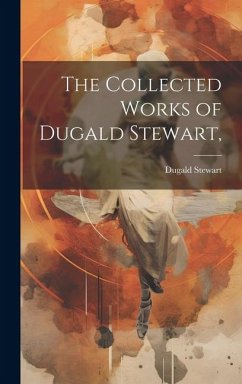
The Economic Philosophies
Versandkostenfrei!
Versandfertig in über 4 Wochen
28,99 €
inkl. MwSt.
Weitere Ausgaben:

PAYBACK Punkte
14 °P sammeln!
The Economic Philosophies provides a comprehensive overview of the evolution of economic thought, tracing its development from ancient philosophies to modern economic theories. This book explores the key thinkers and ideas that have shaped our understanding of economic systems and policies. From the mercantilists and physiocrats to classical economists like Adam Smith and David Ricardo, and onward to Marx, Keynes, and contemporary schools of thought, the author examines the intellectual foundations of economic theory. Agarwala's work delves into the historical context in which these philosophi...
The Economic Philosophies provides a comprehensive overview of the evolution of economic thought, tracing its development from ancient philosophies to modern economic theories. This book explores the key thinkers and ideas that have shaped our understanding of economic systems and policies. From the mercantilists and physiocrats to classical economists like Adam Smith and David Ricardo, and onward to Marx, Keynes, and contemporary schools of thought, the author examines the intellectual foundations of economic theory. Agarwala's work delves into the historical context in which these philosophies emerged, revealing the social, political, and technological forces that influenced economic thinking. It is an invaluable resource for students, scholars, and anyone interested in the historical roots and intellectual debates that continue to shape economic discourse today. This work has been selected by scholars as being culturally important, and is part of the knowledge base of civilization as we know it. This work was reproduced from the original artifact, and remains as true to the original work as possible. Therefore, you will see the original copyright references, library stamps (as most of these works have been housed in our most important libraries around the world), and other notations in the work. This work is in the public domain in the United States of America, and possibly other nations. Within the United States, you may freely copy and distribute this work, as no entity (individual or corporate) has a copyright on the body of the work. As a reproduction of a historical artifact, this work may contain missing or blurred pages, poor pictures, errant marks, etc. Scholars believe, and we concur, that this work is important enough to be preserved, reproduced, and made generally available to the public. We appreciate your support of the preservation process, and thank you for being an important part of keeping this knowledge alive and relevant.






![Three Years With Counterfeiters, Smuglers [!], and Boodle Carriers Cover Three Years With Counterfeiters, Smuglers [!], and Boodle Carriers](https://bilder.buecher.de/produkte/65/65510/65510904n.jpg)





